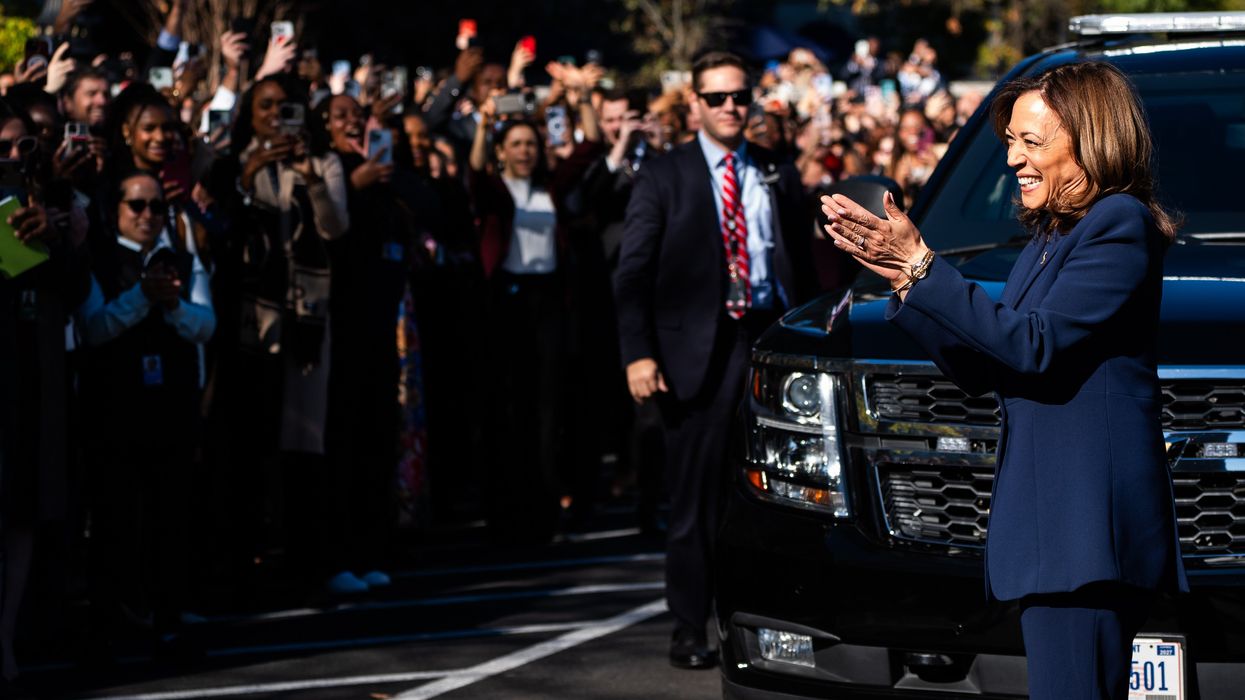“Democrats are like the Yankees,” said one of the most memorable tweets to come across on X after Election Day. “Spent hundreds of millions of dollars to lose the big series and no one got fired or was held accountable.”
Too sad. But that’s politics. The disappointment behind that tweet was widely shared, but no one with any experience in politics truly believes that no one will be held accountable.
It’s common after a national election to see partisans on the losing side join other operatives and media experts in autopsies of the defeat, pointing fingers or coming up with an abundance of excuses.
This time it’s the Democrats sifting through the wreckage of defeat to determine if Election Day was a circumstantial setback or the unfolding of a potentially long-term disaster.
That fear was only encouraged by the realization that the party was in for a repeat of the stunning disappointment Democrats suffered in their loss to Trump in 2016.
This time, Trump actually outperformed his 2020 margins across the map, winning the popular vote as well as the electoral vote, despite his well-documented negatives, including 34 felony convictions.
History also tells us that the parties have shown impressive resilience in their ability to come back from disaster in recent decades.
But, first, comes a reckoning.
The day after the election, as the Washington Post reported, the Dems were “awash in angst-ridden second-guessing.”
Ah, yes, political junkies in the chattering classes produced ample scenarios to pinpoint where they went wrong.
What if Harris had picked, say, Pennsylvania Gov. Josh Shapiro as her running mate? Could that have helped her margins in the “blue wall” states? If Biden had stayed in the race, could he have retained the strong coalition that carried him to victory in 2020?
But the bigger question is, how could the party have so lost touch with the voters that they underestimated the numbers of voters who still wanted to vote for Trump’s mixed message?
The question reminds me of a fundamental principle of political campaigns and voter behavior that I first heard Democratic consultant James Carville express: “Every election is a contest between ‘change’ and ‘more of the same.’ ”
“Change” was the magic word that inspired and propelled the relatively unknown Illinois Sen. Barack Obama’s long-shot campaign to victory in 2008, when the war-weary and economically shaken voters looked for change after eight years under Republican George W. Bush’s presidency. A similar desire for change worked in Joe Biden’s favor against Trump in 2020.
Unfortunately for Harris, she was too closely tied to the Biden administration to credibly promote herself as a change agent. Nor did she have enough time to come up with more of a platform of her own.
Things could have worked out better for her and other Democratic candidates if they had followed the advice offered by John Judis and Ruy Teixeira.
Judis is a journalist from the left who has studied and written about American democracy for decades. Teixeira is a nonresident senior fellow at Washington’s conservative American Enterprise Institute (AEI), and before that was a senior fellow at the Center for American Progress, which makes him one of the few researchers I know who has worked at a liberal and a conservative think tank without losing his mind — a commendable achievement in Washington, a town too often hobbled by ideological segregation.
Their latest book, "Where Have All the Democrats Gone? The Soul of the Party in the Age of Extremes," offers a wake-up call for Democrats and others who they believe have lost sight of the people in America’s political center who both parties are trying to woo. Or should be.
Both parties are afflicted these days with new challenges, even as they try to figure out changes in the electorate that resulted from old challenges.
For example, the turnout of so many young, disenchanted and underemployed white males in this campaign year came as a surprise, particularly to Democrats, who were expecting the party’s support of abortion rights to carry them closer to victory than it finally did.
That, too, offers an important political lesson. Timing is everything, it is often said. But issues matter, too.
Where have all the Democrats gone? Maybe the party’s leaders need to go find out.
Page is an American journalist, syndicated columnist and senior member of the Chicago Tribune editorial board.
©2024 Tribune Content Agency. Distributed by Tribune Content Agency, LLC.



















Trump & Hegseth gave Mark Kelly a huge 2028 gift